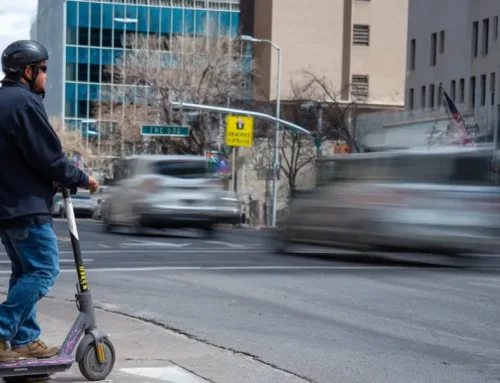Traumatic brain injuries (TBI) have taken a spotlight in the news over recent years, as professional athletes and students have filed lawsuits against the NCAA and NFL. There were 223,000 hospitalizations related to traumatic brain injury in 2019, according to the CDC. 176 Americans died every day from a TBI-related injury in 2020. But what exactly does that mean?
A traumatic brain injury is any injury that affects the way the brain works. It can have a short-term or long-term affect. TBI’s may be caused by lots of different things, including a bump or blow to the head, a penetrating injury like a gunshot, or a jolt to the head like being next to an explosion or whiplash. TBIs related to car accidents are very common.
Traumatic brain injuries range in severity. The most common variety of TBI is a mild one, most often called a concussion.
What is a concussion and how do I know if I have one?
Even though they are considered a mild injury, concussions are serious. A concussion is caused by a blow, bump, or jolt to the head or a hit to the body that makes the head and brain move quickly back and forth. When the brain bounces around inside the skull, it leads to bruised or damaged brain cells and chemical changes in the brain.
Some of the symptoms of a concussion include:
- Changes in vision;
- Confusion or difficulty answering questions;
- Slurred speech;
- Ringing in the ears;
- Blurred vision or sensitivity to light or sound;
- Feeling drowsy or dizzy;
- Feeling like you’ve “lost time;”
- Hard to wake up;
- Headache or a feeling of pressure in your head;
- Loss of consciousness;
- Memory loss (amnesia) of events before the injury or immediately after; and/or
- Nausea and vomiting.
These symptoms can range from mild to severe, and can have a short duration or be more lasting. Having more than one concussion puts you at greater risk for permanent damage. The brain doesn’t regenerate new cells, but it can learn to function through new neural pathways. It can take weeks or months to recover. Concussion symptoms may take a while to develop after the incident where you were injured.
How do I deal with a concussion if I have one?
If you suspect that you have a concussion, you should seek medical attention as soon as possible. Depending on the severity of the concussion, you can recover at home. You might need lots of rest, medication, or even physical or occupational therapy to help you.
The costs of a concussion can go beyond physical, as it might mean loss of work and expensive medical bills. If you were injured through the negligence of someone else, you may be able to file a lawsuit to recover damages. A successful traumatic brain injury lawsuit will require proving four elements:
- First, you must prove that there was a Duty of Care, meaning that someone was responsible for keeping you safe.
- Next, there must be a breach of that duty. For instance, there was something they should have done, but didn’t, like following a speed limit while driving.
- Next, you must show that that breach of duty caused harm. If the speeding driver didn’t hurt anyone, there is no harm caused. However, if they crashed into your car, their breach of duty has caused you harm.
- Finally, you need to show that you have suffered damages, such as lost work or injuries that impacted your daily life.
Concussion from a car accident? Call Roadrunner Law.
If you have suffered a traumatic brain injury through the negligence of someone else, it’s important to consult a knowledgeable attorney who can help you navigate the details of a TBI lawsuit. An attorney will know if your damages are economic, non-economic, or if punitive damages might be necessary. It is especially important to consult a TBI attorney if the injury occurred in a child or someone who is elderly, as the damages may be more severe for these individuals and they may require additional funds for additional care.
With the help of a good medical team and a compassionate and skilled attorney, physical and economic recovery from a concussion is possible.



